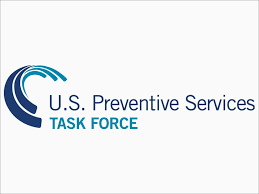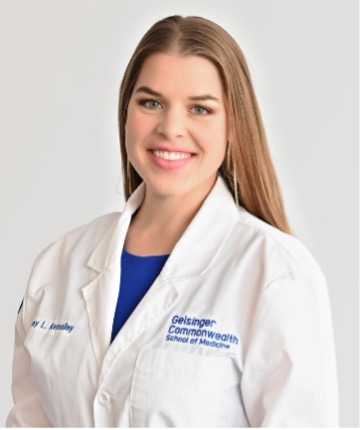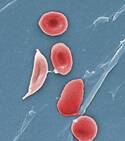Author Interviews, Respiratory, Social Issues, University of Michigan / 31.01.2024
People Sick With Contagious Respiratory Viruses Often Conceal Illness for Personal or Professional Reasons, Regardless of Effects on Others
MedicalResearch.com Interview with:
 Wilson N. Merrell
Ph.D. Student
Department of Psychology
University of Michigan
MedicalResearch.com: What is the background for this study?
Response: From the common cold to COVID-19, people get sick all the time. Because our social worlds don’t pause just because we are feeling ill, we often still need to navigate in-person events ranging from work and school to first dates and family dinners even while we’re feeling under the weather. In these kinds of social situations, do we always tell others when we’re feeling sick, or are there times when we may want to downplay our illness? After all, we tend to react negatively to, find less attractive, and steer clear of people who are sick with infectious illness. To the extent that we want to avoid these negative social outcomes while sick, it therefore makes sense that we may take steps to cover up our sickness in social situations. Given that this concealment could serve individual social goals (like allowing you to connect with others) at the cost of broader harms to public health (through the spread of infectious disease), we found this behavior both theoretically novel and practically timely.
(more…)
Wilson N. Merrell
Ph.D. Student
Department of Psychology
University of Michigan
MedicalResearch.com: What is the background for this study?
Response: From the common cold to COVID-19, people get sick all the time. Because our social worlds don’t pause just because we are feeling ill, we often still need to navigate in-person events ranging from work and school to first dates and family dinners even while we’re feeling under the weather. In these kinds of social situations, do we always tell others when we’re feeling sick, or are there times when we may want to downplay our illness? After all, we tend to react negatively to, find less attractive, and steer clear of people who are sick with infectious illness. To the extent that we want to avoid these negative social outcomes while sick, it therefore makes sense that we may take steps to cover up our sickness in social situations. Given that this concealment could serve individual social goals (like allowing you to connect with others) at the cost of broader harms to public health (through the spread of infectious disease), we found this behavior both theoretically novel and practically timely.
(more…)
 Wilson N. Merrell
Ph.D. Student
Department of Psychology
University of Michigan
MedicalResearch.com: What is the background for this study?
Response: From the common cold to COVID-19, people get sick all the time. Because our social worlds don’t pause just because we are feeling ill, we often still need to navigate in-person events ranging from work and school to first dates and family dinners even while we’re feeling under the weather. In these kinds of social situations, do we always tell others when we’re feeling sick, or are there times when we may want to downplay our illness? After all, we tend to react negatively to, find less attractive, and steer clear of people who are sick with infectious illness. To the extent that we want to avoid these negative social outcomes while sick, it therefore makes sense that we may take steps to cover up our sickness in social situations. Given that this concealment could serve individual social goals (like allowing you to connect with others) at the cost of broader harms to public health (through the spread of infectious disease), we found this behavior both theoretically novel and practically timely.
(more…)
Wilson N. Merrell
Ph.D. Student
Department of Psychology
University of Michigan
MedicalResearch.com: What is the background for this study?
Response: From the common cold to COVID-19, people get sick all the time. Because our social worlds don’t pause just because we are feeling ill, we often still need to navigate in-person events ranging from work and school to first dates and family dinners even while we’re feeling under the weather. In these kinds of social situations, do we always tell others when we’re feeling sick, or are there times when we may want to downplay our illness? After all, we tend to react negatively to, find less attractive, and steer clear of people who are sick with infectious illness. To the extent that we want to avoid these negative social outcomes while sick, it therefore makes sense that we may take steps to cover up our sickness in social situations. Given that this concealment could serve individual social goals (like allowing you to connect with others) at the cost of broader harms to public health (through the spread of infectious disease), we found this behavior both theoretically novel and practically timely.
(more…)









 Lauren C. Davis, MBS
Department of Medical Education
Geisinger Commonwealth School of Medicine
Scranton, PA 19409
MedicalResearch.com: What is the background for this study?
Response: Financial conflicts of interest (COIs) resulting from ties between academia and industry have been under scrutiny for their potential to hinder the integrity of medical research. COIs can lead to implicit bias, compromise the research process, and erode public trust (1-6). The American Psychiatric Association’s Diagnostic and Statistical Manual of Mental Disorders (DSM), standardizes symptom criteria and codifies psychiatric disorders. This manual contributes to the approval of new drugs, extensions of patent exclusivity, and can influence payers and mental health professionals seeking third-party reimbursements. Given the implications of the DSM on public health, it is paramount that it is free of industry influence. Previous research has shown a high prevalence of industry ties among panel and task force members of the DSM-IV-TR and DSM-5, despite the implementation of a disclosure policy for the DSM-5 (7,8). This study (9) determined the extent and type of COIs received by panel and task-force members of the DSM-5-TR (2022) (10). As the DSM-5-TR did not disclose COI, we used the Center for Medicare and Medicaid Services Open Payments (OP) database (11) to quantify them.
Lauren C. Davis, MBS
Department of Medical Education
Geisinger Commonwealth School of Medicine
Scranton, PA 19409
MedicalResearch.com: What is the background for this study?
Response: Financial conflicts of interest (COIs) resulting from ties between academia and industry have been under scrutiny for their potential to hinder the integrity of medical research. COIs can lead to implicit bias, compromise the research process, and erode public trust (1-6). The American Psychiatric Association’s Diagnostic and Statistical Manual of Mental Disorders (DSM), standardizes symptom criteria and codifies psychiatric disorders. This manual contributes to the approval of new drugs, extensions of patent exclusivity, and can influence payers and mental health professionals seeking third-party reimbursements. Given the implications of the DSM on public health, it is paramount that it is free of industry influence. Previous research has shown a high prevalence of industry ties among panel and task force members of the DSM-IV-TR and DSM-5, despite the implementation of a disclosure policy for the DSM-5 (7,8). This study (9) determined the extent and type of COIs received by panel and task-force members of the DSM-5-TR (2022) (10). As the DSM-5-TR did not disclose COI, we used the Center for Medicare and Medicaid Services Open Payments (OP) database (11) to quantify them.


 Scott Kaplan PhD
Assistant Professor of Economics
United States Naval Academy
Annapolis, MD 21402
MedicalResearch.com: What is the background for this study?
Response: Sugar-sweetened beverages (colloquially known as SSBs), which include sodas, fruit drinks, sports drinks, energy drinks, and sweetened coffee drinks, are the leading source of added sugars in the American diet, according to the CDC. They are associated with serious negative health outcomes, including type 2 diabetes, obesity, heart disease, kidney disease,
Scott Kaplan PhD
Assistant Professor of Economics
United States Naval Academy
Annapolis, MD 21402
MedicalResearch.com: What is the background for this study?
Response: Sugar-sweetened beverages (colloquially known as SSBs), which include sodas, fruit drinks, sports drinks, energy drinks, and sweetened coffee drinks, are the leading source of added sugars in the American diet, according to the CDC. They are associated with serious negative health outcomes, including type 2 diabetes, obesity, heart disease, kidney disease, 
















